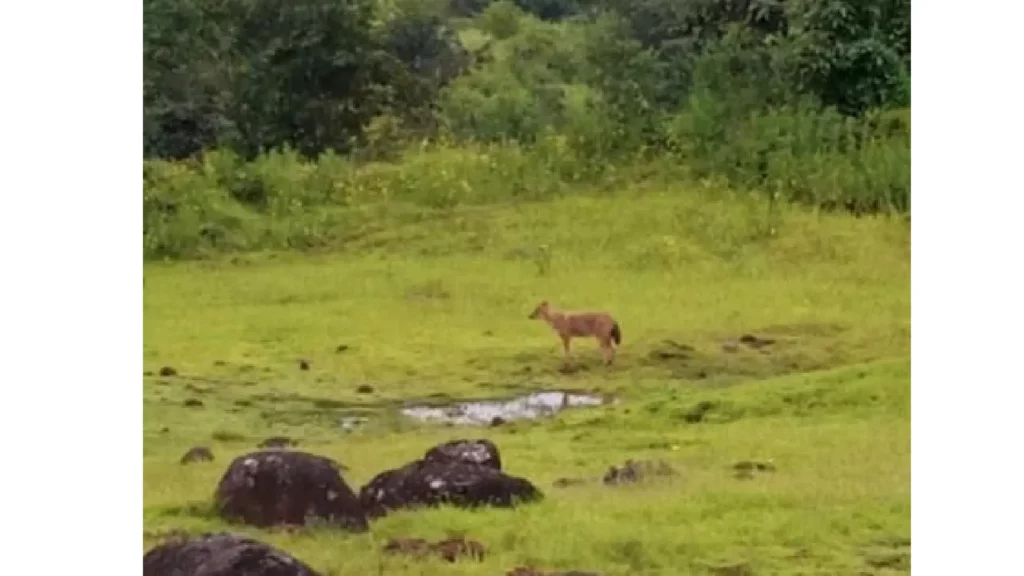Rare Discovery: Wild Dogs Reappear in Bhimashankar After 195 Years

Pune: In a significant wildlife discovery, a pair of wild dogs has been spotted in the Bhimashankar sanctuary, marking their return to the region after an absence of nearly 195 years. This rare finding has been documented in a research paper recently published in the international scientific journal ZOO’s Print by Umesh Waghela, chairman of Alive Charitable Trust and a noted wildlife researcher.
Umesh Waghela, who was conducting a study tour at Ahupe Devarai, first encountered the wild dogs while using binoculars to observe the area. The sighting was accompanied by photographic evidence, providing crucial confirmation of the species’ presence in the sanctuary. His comprehensive research, which spanned ten months, culminated in a detailed paper highlighting the significance of this rediscovery.
According to Waghela, wild dogs, also known as Kolsun or Indian wild dogs, are gregarious social carnivores that typically inhabit open spaces within dense forests. These animals require habitats with ample shade, suitable prey, and access to water. Historically, wild dogs have been found in the northern and eastern parts of Maharashtra. Previous camera trap surveys had recorded their presence in the Sahyadri Tiger Reserve and Radhanagari Wildlife Sanctuary.
The last recorded observation of wild dogs in the Bhimashankar area dates back to 1828, when Colonel William Henry Sykes of the East India Company noted sightings of dead wild dogs reported by local tribal inhabitants. This historical account suggested the species was no longer present in the area. However, Waghela’s recent discovery offers the first photographic evidence of their reappearance in Bhimashankar in almost two centuries.
Dr. Anil Mahabal, a retired scientist from the Zoological Survey of India, provided valuable guidance throughout the research. The identification of the wild dogs was further confirmed by Dr. Shyamkant Talmale, Mammal Zoologist at the Zoological Survey of India. Support for the study was also provided by Raghuraj Erande and Vishwanath Bhagwat of Alive Sanstha, as well as Shivraj Pimpude of Gyan Prabodhini Vidyalaya.
Waghela emphasised that despite their common name, wild dogs are not related to domesticated dogs but are a distinct species within the dog family. They are known for their social structure, living in herds and thriving in both dense forests and open areas throughout the year.





